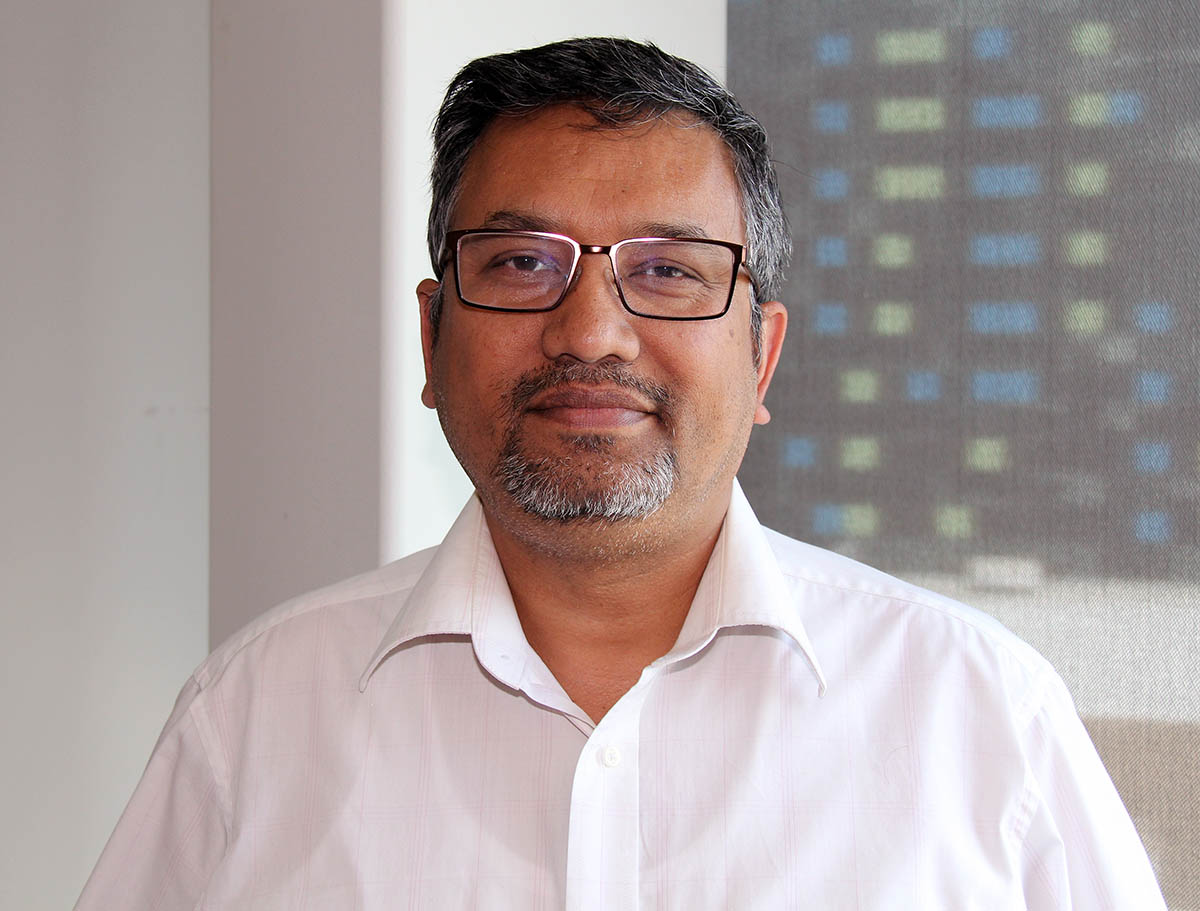
Kawser is an adjunct professor at the University of Winnipeg (political science) and a co-founder of Winnipeg based research think tank – Conflict and Resilience Research Institute Canada (CRRIC). He completed his SSHRC post-doctoral fellowship at the same university in 2020. He was an exchange officer with the Turkish Armed Forces, an observer to the United Nations Missions in Western Sahara (MINURSO), and an alumnus at the Near East South Asia Center for Strategic Studies (NESA) in National Defence University (NDC), Washington DC. Dr. Ahmed graduated in Peace and Conflict studies (MPhil, University of Dhaka & PhD, University of Manitoba). Dr. Ahmed is a research fellow with the Center for Defence and Security Studies (CDSS) and a junior research affiliate with the Canadian Network for Research on Terrorism, Security, and Safety (TSAS). He was an associate with the Canadian Practitioners Network for Prevention of Radicalization and Extremist Violence (CPN-PREV).
His research interests are social conflict and peace-building through transformative dialogue (TD), genocide prevention, counter radicalism and extremism, and UN peacekeeping operations. He lives with his wife, two children, and two cats in Winnipeg, Manitoba.
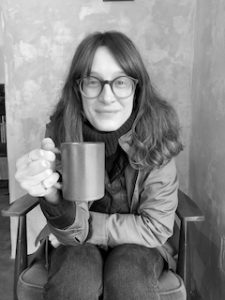
Nicky is the Communications Manager at the Centre for Women, Peace and Security and on the Gender, Justice and Security Hub. She designs the Hub and Centre’s communications structures, sets the communications goals based on the research agenda, defines the communication principles and standards and works to visualise research for broader audiences. Nicky has a background in graphic design and international relations, using the theories across both disciplines to inform her ongoing research around communications and warfare, looking at gender and drone warfare specifically, digital communications and women, peace and security and also the ways in which communication can drive sustainable change.
Nicky tweets @NickyArmstrong0
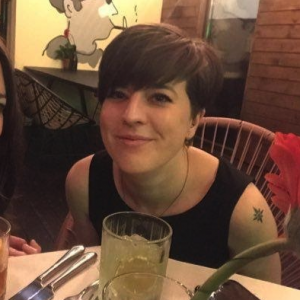
Catherine is a Lecturer in Peace and Conflict Studies in the Humanitarian and conflict Response Institute (HCRI) at the University of Manchester. Her research focuses on nationalism and political symbols in post-conflict nation-building and reconstruction, exploring how national identities are constructed and visually represented. Her regional expertise is in post-colonial and post-conflict societies, including those that have experienced ethno-nationalist violence and particularly Timor-Leste, Northern Ireland, and Cyprus. Her recent book, Political Symbols and National Identity in Timor-Leste, was published last year by Palgrave Macmillan. Catherine is a founding member of the International Consortium for Conflict Graffiti (ICCG) and the chair of the Visual Arts strand of the HCPB. She teaches on peacebuilding and security, international governance, and nations and nationalism.
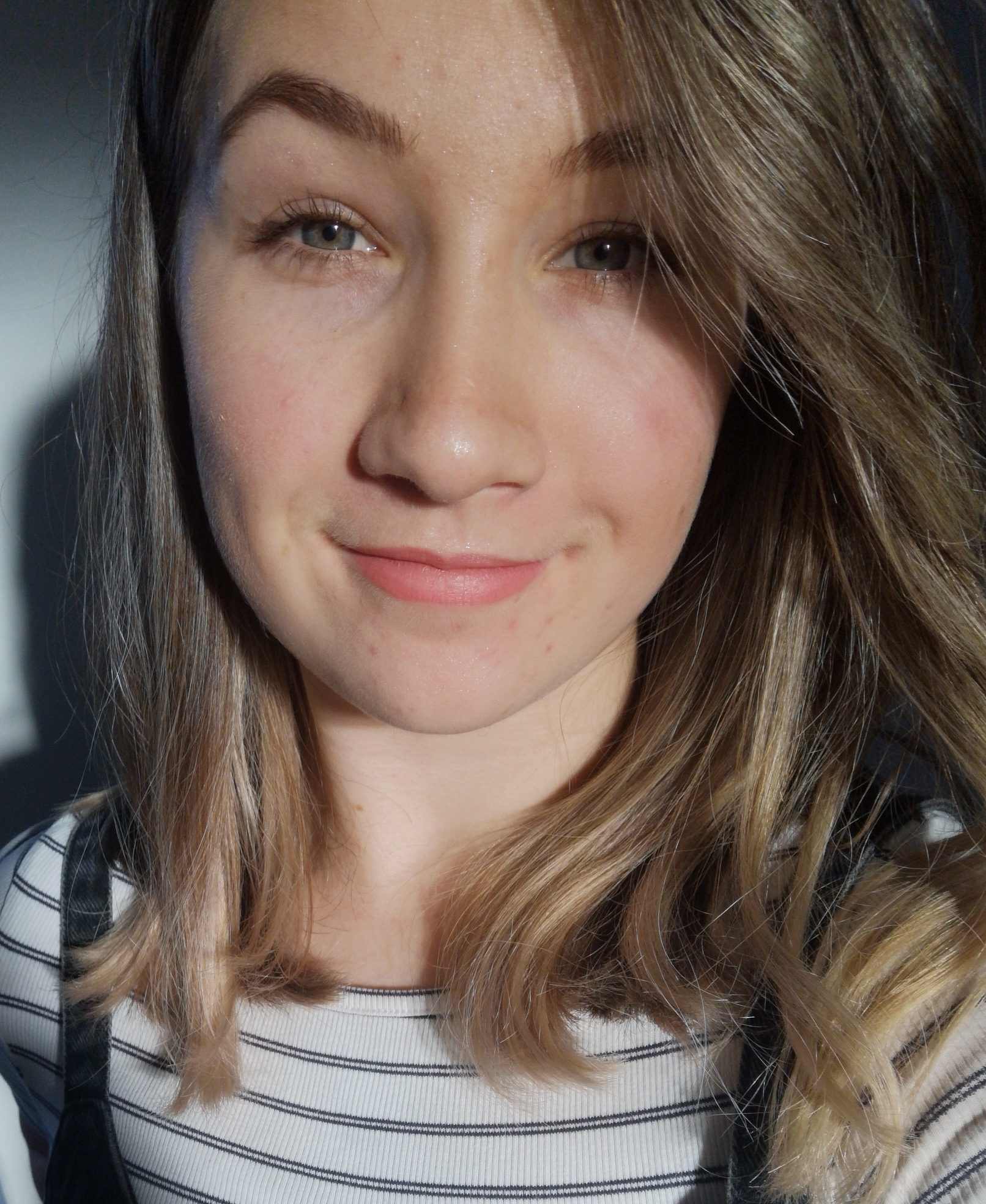
Victoria Baskett
Victoria is a PhD at the University of Sheffield and is researching the use of community radio as a peacebuilding tool in the post-conflict society of Sierra Leone. More specifically, Victoria’s research will observe the processes behind the production and distribution of a longstanding radio soap opera broadcast by a community radio station which forms a part of a broader peacebuilding strategy in Sierra Leone. The research topic raises questions regarding the efficacy of community radio as a peacebuilding and social development tool.
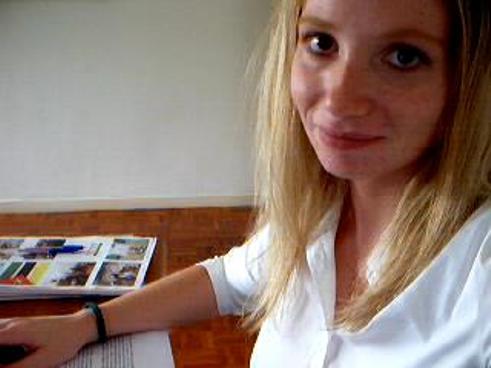
Valentina works as a Senior Lecturer & Researcher at the University of New South Wales (Sydney, Australia). Both as a practitioner and as a researcher, her work has focused on the use of the media & communication in international development. She has completed a PhD on the role of participatory media in conflict transformation and reconciliation after civil violence. Her present research explores different theoretical frameworks and practical applications in the area of Communication for Development in Peacebuilding. Valentina has collaborated with different international NGOs, the United Nations and the Italian Development Cooperation, and worked in different contexts in Africa and Asia. Her experience involves the implementation of both research and media projects with victims and perpetrators of conflict, displaced people, refugees and people living in extreme poverty.
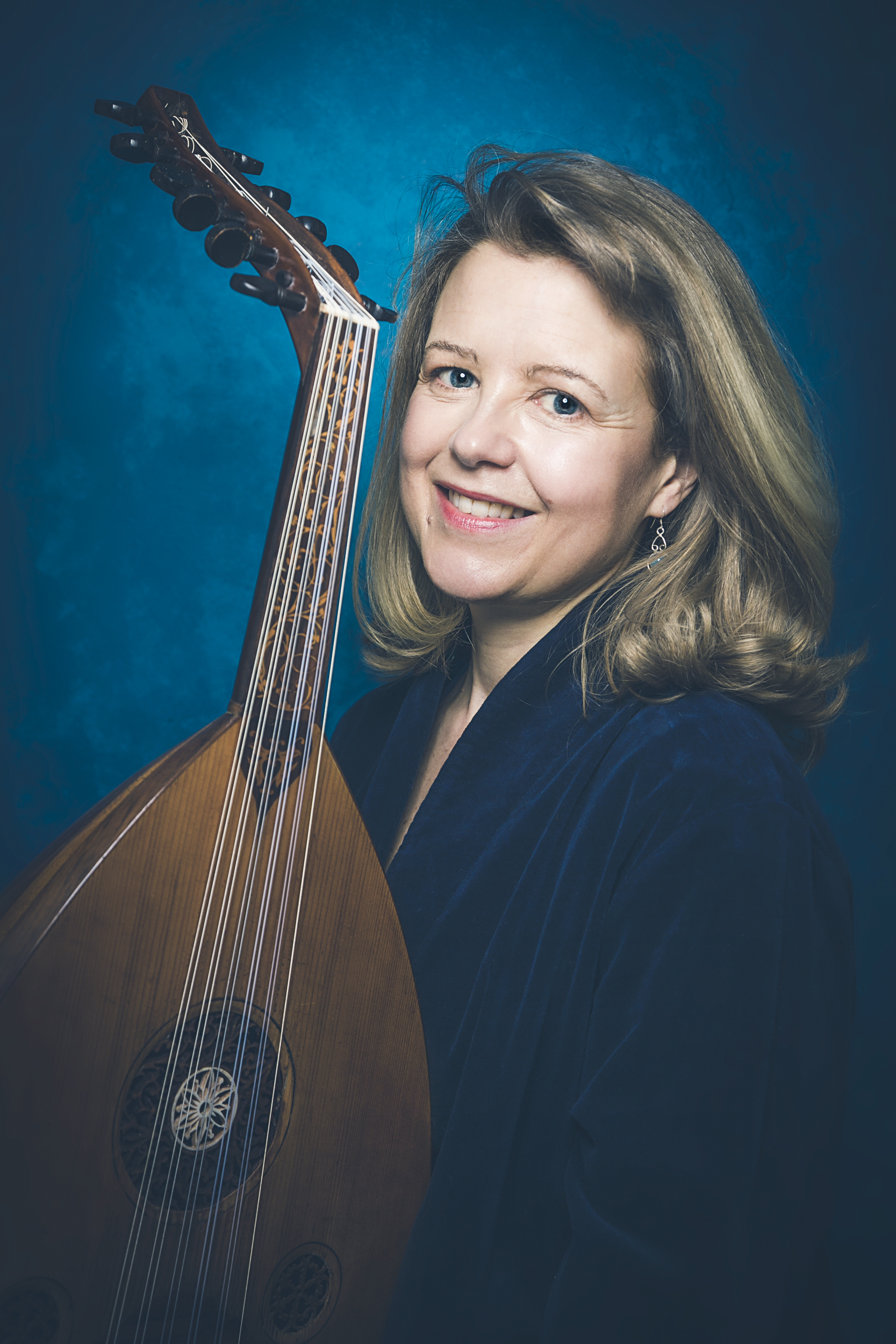
Professor Rachel Beckles Willson
Rachel is an independent researcher, composer and multi-instrumentalist (oud, saxophone, piano and voice). In her voluntary activism and professional work she specialises in music and displacement, and traditions of the Middle East. She has worked on conflict and peace-building in Palestine, Hungary, and Italy, and increasingly incorporates her concerns about gender and the environment in our unevenly globalised world.
Rachel is co-founder of Today is Good! [todayisgood.org], a song-writing project with asylum-seekers in Sicily; and founder of Music Boat [musicboat.org], an online platform for boundary-crossing collaboration and education in music. She is also Director of Beyond Mode [www.rachelbeckleswillson.com/beyond-mode], a quartet exploring new music at the boundaries of traditions from around the Mediterranean. She is also founder and editor of Oudmigrations [www.oudmigrations.com], a web-based resource for understanding musical instruments across time and space that has an ongoing concert series in Rome begun in 2018. As an oud player she explored Arab and Iraqi traditions before coming to concentrate on Ottoman repertories and makam, but is most interested in developing new repertories for the instrument.

Hannah is a Lecturer in Humanitarian Studies at the Humanitarian and Conflict Response Institute at the University of Manchester. Her research sits at the intersection of International Law, International Relations, Conflict Studies and Gender Studies. She is interested in the causes, consequences and meanings of sexualised war violence against women and how it is addressed in transitional justice processes and mechanisms, including criminal prosecutions, psychosocial work, theatre and sequential art. Her regional expertise is on the Western Balkans and Sub-Saharan Africa.

Dmitry is Lecturer in media and international politics at the University of Sheffield and author of the book Public Perception of International Crises (2019). His expertise includes public opinion and international crises; memory and trauma of conflict; identity politics and critical security studies; strategic communication in conflict; and digital humanitarianism. His research has addressed various international crises and included collaborations with major humanitarian organisations.
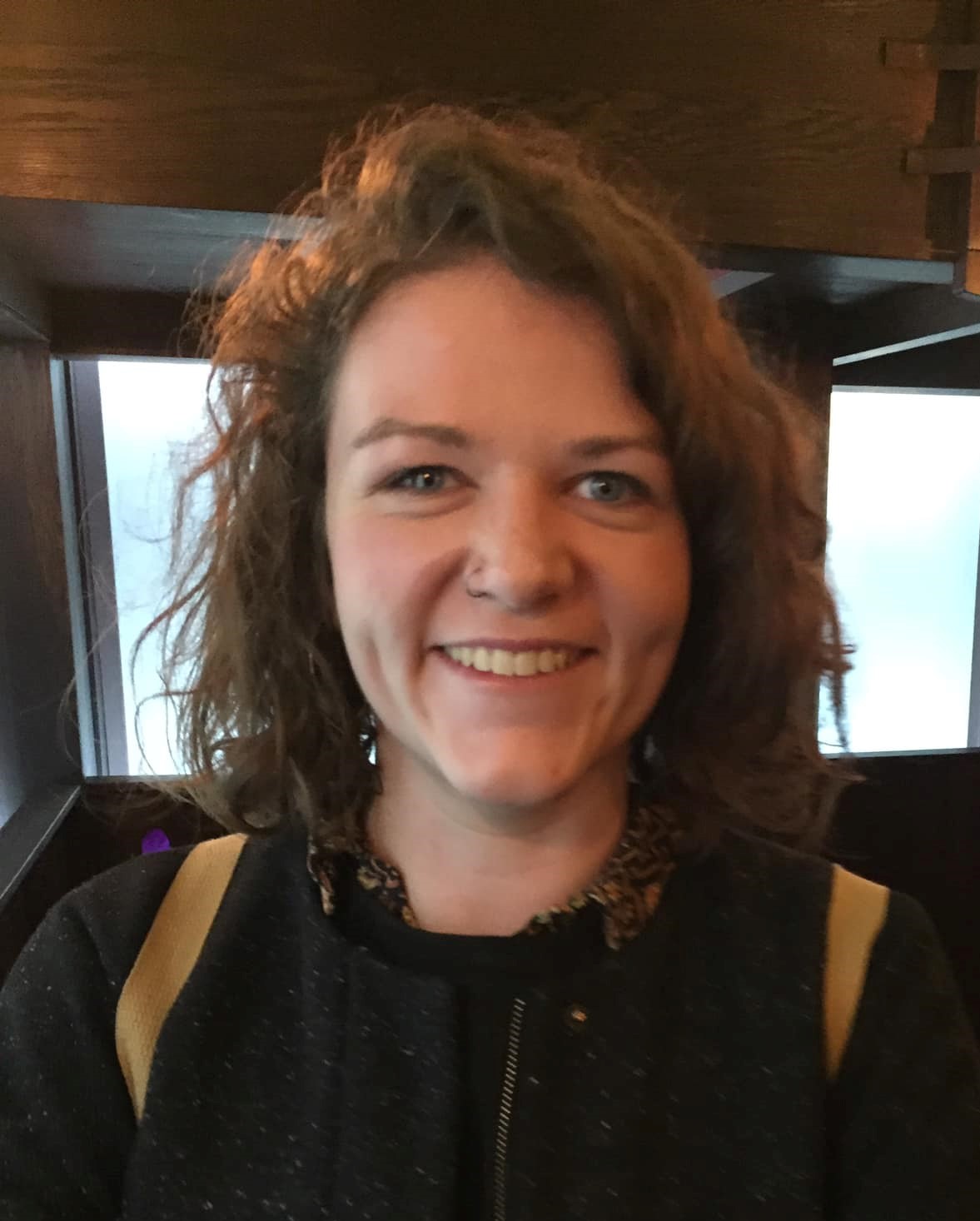
Lydia is a Postdoctoral Researcher at Durham University on the AHRC-funded project ‘The Art of Peace’. Her research engages at the intersections of feminist international relations, critical peace and conflict studies, and visual global politics, with a particular interest in the contributions of curating and the arts to peacebuilding. She is also interested in conceptual approaches to recognition in grassroots and institutional justice processes. She has conducted fieldwork in Bosnia and Herzegovina and has previously co-curated exhibitions on global conflict textiles, including Stitched Voices (Aberystwyth Arts Centre) and Threads, War and Conflict (The Byre Theatre, St Andrews).
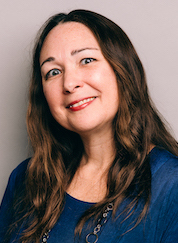
Stacey is a Professor in the Brian Lamb School of Communication at Purdue University and the Director of the Purdue Policy Research Institute (PPRI) in Purdue’s Discovery Park. Her published research examines the communicative constitution of leadership and multi-stakeholder organizing, most recently in the context of political violence prevention initiatives. Dr. Connaughton serves as Director of the Purdue Peace Project (PPP), housed in the Purdue Policy Research Institute. As PPP Director, Dr. Connaughton has led the multi-stakeholder relationship building, project development, and (participatory) monitoring and evaluation for locally led peacebuilding initiatives in Ghana, Liberia, and Nigeria. Dr. Connaughton developed what she terms the local leadership model of political violence prevention. Her forthcoming edited book Are we making a difference?: Global and local efforts to assess peacebuilding effectiveness includes chapters from practitioners, donors, and academics worldwide as well.
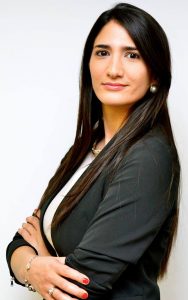
Diana is the director of the Colombian Institute of Studies of the Public Ministry, working in the intersection between public innovation, education and participatory democracy to guarantee human rights, fight corruption and improve public services. Social and political inclusion in post-conflict societies is Diana’s biggest interest. Her career is rooted in Colombia and Latin America’s state-building efforts, working in projects involving democratic innovation, human rights and conflict transformation. Before her current position as a public servant she founded and directed Policéntrico, a start-up that fosters sustainable development and participatory democracy in Colombia. She has also been a Build Peace Fellow, an advisor for the Colombian Ministry of Interior and a Project Manager of the Konrad-Adenauer-Stiftung’s Rule of Law Programme for Latin America. She is a PhD candidate at the University of Oxford, a Skoll Centre for Social Entrepreneurship Research for Action Awardee, and a Colciencias Scholar.
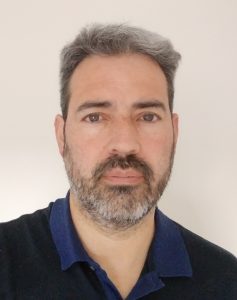
My research is at the intersection of the humanities and social sciences, focusing on Participatory Action Research (PAR) projects in conflict situations. This work is complemented by twenty years’ experience teaching in the adult community learning and higher education sectors in Colombia and the UK. My current research project contributes towards dialogues and building local capacities through participatory research in (post)accord Colombia.
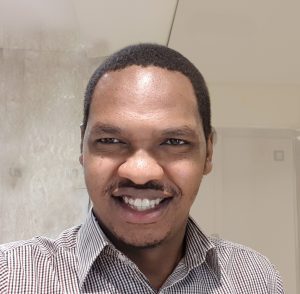
Caleb works at Build Up where he manages programming for Africa. He is a specialist in Information, Communication and Technologies for Development (ICT4D). He has over 9 years’ experience in applying technology to peacebuilding approaches to address violent conflict in Africa. He has researched and applied various digital tools to address election violence, good governance, violent extremism and conflict mitigation. Caleb has extensive experience working on polarization online specifically hate and dangerous speech, misinformation/disinformation and incitement to violence. He has collaborated with various actors to develop and implement conflict early warning and response systems, digitally map conflict, address hate speech online, develop training modules on digital engagement in conflict contexts and monitor and prevent electoral violence. He has skills in social media listening, data and network analysis, strategic communications, conflict analysis and community building.
He is a Chevening Fellow and U.S. Dept of State’s CSP fellow. You can connect with Caleb on Linkedin.

Stefan is Director of the Centre for the History of War, Media and Society at the University of Kent. His research interests include the commemoration of conflict and the history of war, propaganda and the media. Among his latest publications are Ypres (co-authored with Mark Connelly; Oxford University Press, 2018) and Propaganda and Conflict (co-ed.; Bloomsbury, 2019).
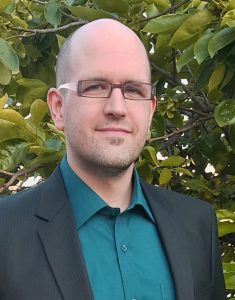
Ben Gross
Ben is a lecturer in international business communication at Seokyeong University in Seoul, South Korea teaching courses on intercultural communication and conflict resolution. Living on four continents in the past 20 years has fostered a deep passion and commitment for intercultural communication and exchange. His research is located at the intersection of sociology, anthropology, culture studies and decolonial theory. It is especially concerned with cultural violence within organizations. This is situated within a broader research agenda tracing communication and culture through historical, scientific, and intellectual formations and translations to better understand Eurocentric knowledge and value creation. His current research is a materialist analysis of how English language communication and learning reproduces white heteropatriarchal privilege and coloniality in South Korean higher education.
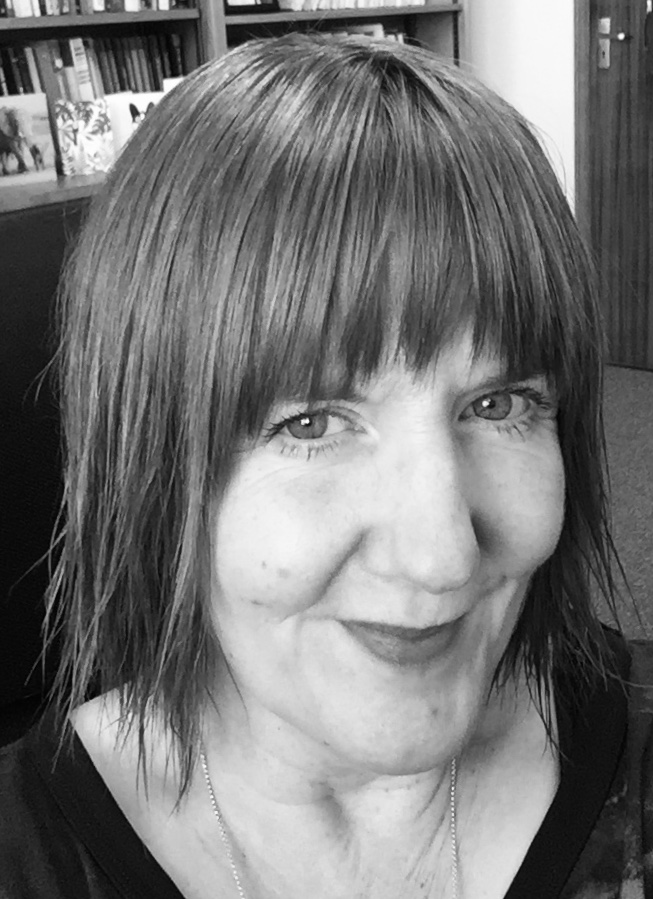
Nicki is Professor of French at the University of St Andrews. She is a specialist in postcolonial literatures in French and English from sub-Saharan Africa. Her research, funded by the AHRC, the British Academy and the Leverhulme Trust, has focused on West African women’s writing, migrant fiction and, most recently, fictional responses to the 1994 Genocide against the Tutsi in Rwanda. From 2015 to 2018, Nicki led the AHRC-funded project, Rwandan Stories of Change in partnership with NGO the Aegis Trust and the Genocide Archive of Rwanda. In 2018, she was a finalist for the inaugural Wellcome Trust/AHRC Health Humanities Medal in the Category of Best International Research. Nicki is currently working on representations of Rwanda in narratives from Belgium, the former colonial power.
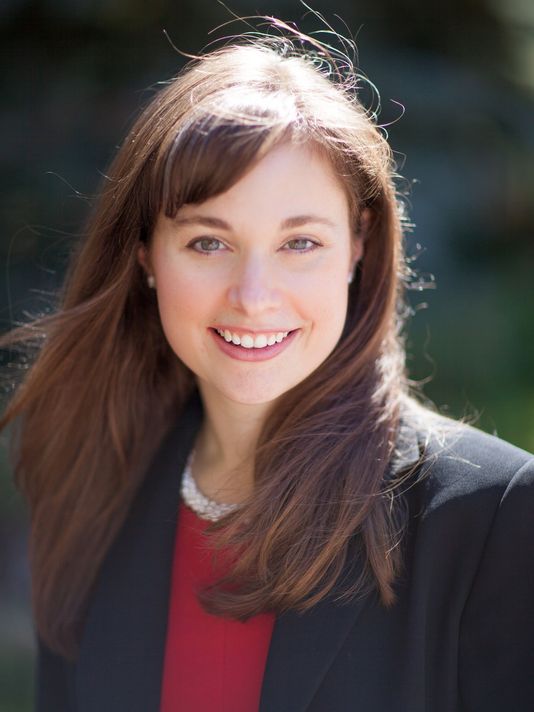
Kristina is the Executive Director of the Better Evidence Project in the Center for Peacemaking Practice at George Mason University’s Jimmy and Rosalynn Carter School for Peace and Conflict Resolution. She is an anthropologist and scholar-practitioner specializing in large-scale violence against civilians (including genocides and mass atrocities) as well as emerging forms of warfare and violence.
Kristina Hook’s current book project explores the dynamics and legacy of the Soviet-era Holodomor mass atrocities. Supported by a National Science Foundation Graduate Research Fellowship (NSF GRFP) and a USAID Research and Innovation Fellowship, she conducted two-and-a-half years of ethnographic fieldwork in Ukraine from 2015-2019.
She has research, teaching, and professional experience on topics including genocide causality, post-conflict reconstruction, trauma healing, the costs of conflict, civilian protection policies, and evolving security challenges like hybrid warfare and environmental degradation. She has worked in 23 countries including across Eastern Europe, the Balkans, the Middle East, Southeast Asia, East Africa, and the Caribbean.

Charles is Vice Chancellor’s Senior Research Fellow in the Social & Global Studies Centre, at RMIT University in Melbourne. He is also a non-resident fellow at the United Nations University Centre for Policy Research in New York and Senior Research Fellow at the Asia Pacific Centre for the Responsibility to Protect (APR2P). His research in the field of international relations, peace and conflict studies is focused on peacekeeping and peacebuilding with a particular interest in the role of public information in UN peace operations and media development programming in conflict-affected societies.
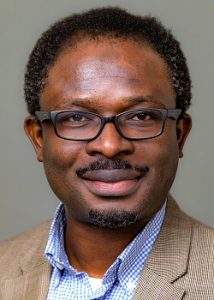
Jacob is a Visiting International Scholar in the International Studies program at Dickinson College, US. Before Dickinson, he worked at the American University of Nigeria as Chair of the Communications and Multimedia Design Program. He holds a PhD in Communication Studies from the University of Leeds and MA in Peace Studies from Lancaster University, UK. Jacob’s new book with Dr. Margee Ensign, ‘Transactional Radio Instruction: Improving Educational Outcomes for Children in Conflict Zones’ (Palgrave Macmillan, 2020), describes lessons from a USAID-funded education-in-emergencies intervention which they both led in Boko Haram-ravaged northeast Nigeria. The project was nominated by Nigeria’s Federal Ministry of Education for the UNESCO King Hamad Bin Isa Al-Khalifa Prize for the Use of ICT in Education.
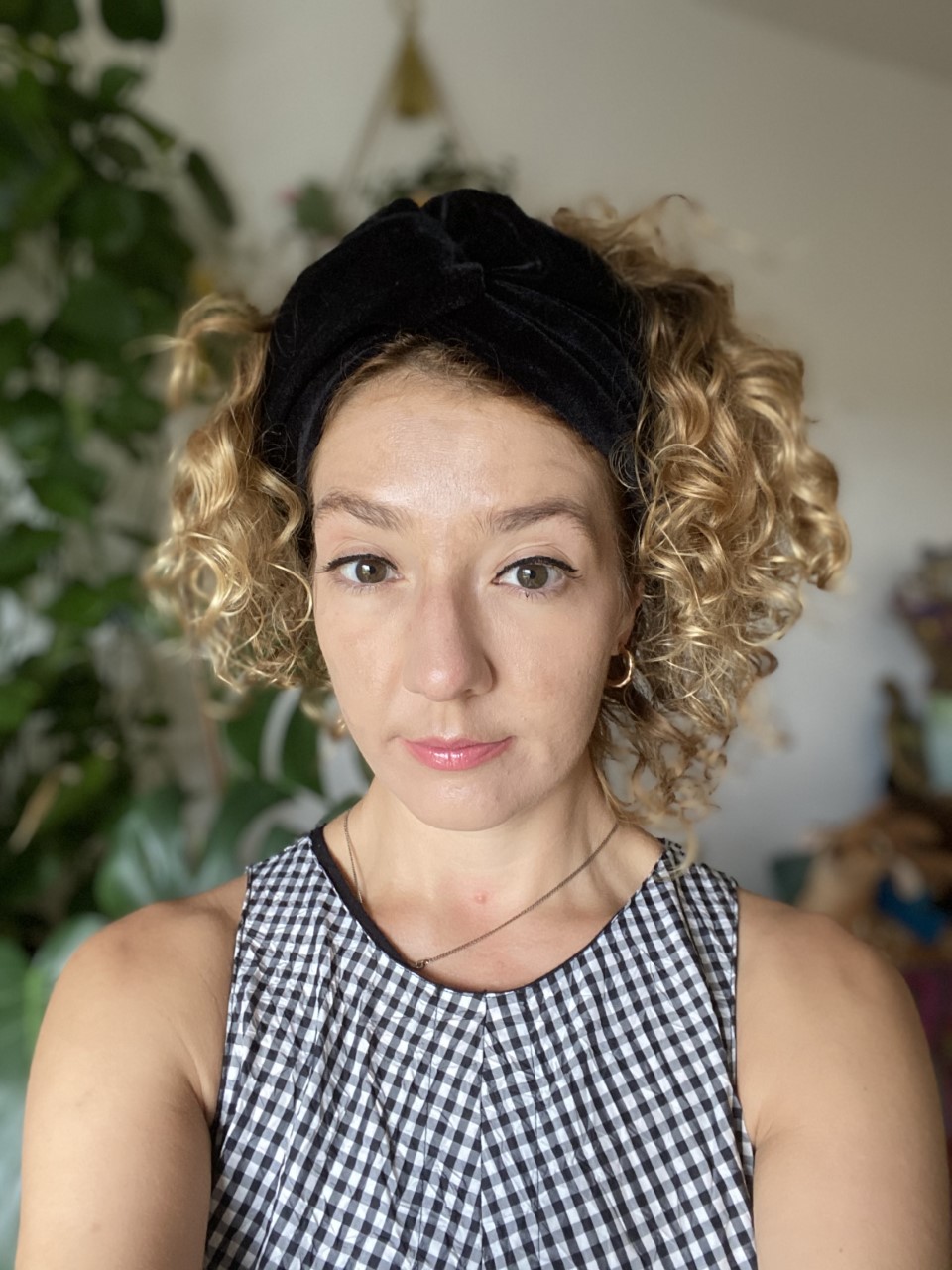
Urban space creative facilitator, choreographer, and researcher, and founder of the Urban Research Forum and The Living Collective. Drawing from Somatic practices and working extensively with improvisation and Ecopsychology; Beatrice works across a diverse range of community settings both nationally and internationally to explore through site-based and studio practices; the social power and potential of embodied movement practices. Her practice has explored the potential of somatic work to act as a platform for social reconciliation and acknowledgment of trauma due to conflict specifically in Germany and Ireland. Her socio-choreographic research has been profiled within Pina Bausch Symposium, Bauhaus-Universität Weimar, dOCUMENTA (13), National School of Art Bucharest, Galway Dance Festival, Goldsmiths CUCR Tate, and AAG. Her commissions include GroundWork, Steven Lawrence Center and EGFK Berlin.

Stefanie is Associate Professor in Conflict Resolution and Peacebuilding at Durham University. She is currently working on a range of externally funded projects that investigate the politics of memory in relation to peacebuilding, the cultural heritage of conflict as well as the role of the arts in peace formation processes. She has also worked on the spatial representations of peace and conflict and conducted fieldwork in Bosnia-Herzegovina, South Africa, Cyprus, Northern Ireland and Kosovo.
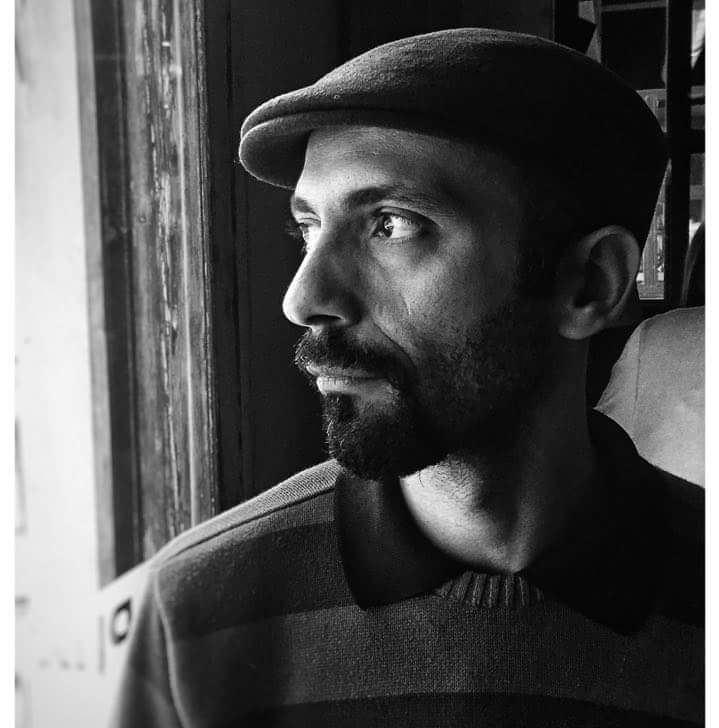
Hakan is a lecturer at the Faculty of Communication and Media Studies at Near East University. Since 2004, he got involved in Education for Peace projects with POST Research Institute and took in part in analysing history education on the northern part of Cyprus. His studies were mostly published in various journals in Cyprus and in Turkey, including the book that he edited entitled, Past Traumas: The Representation of
History and Peace Education, published by POST Research Institute in 2013 and Education in a Multicultural Cyprus, edited by Iacovos Psaltis, Nicos Anastasiou, Hubert Faustmann, Maria Hadjipavlou, Hakan Karahasan and Marilena Zackheos, published by Cambridge Scholars Publishing in 2017. His research interests are philosophy of communication, new capitalism and its relation with communication, Emmanuel Levinas, and history education.
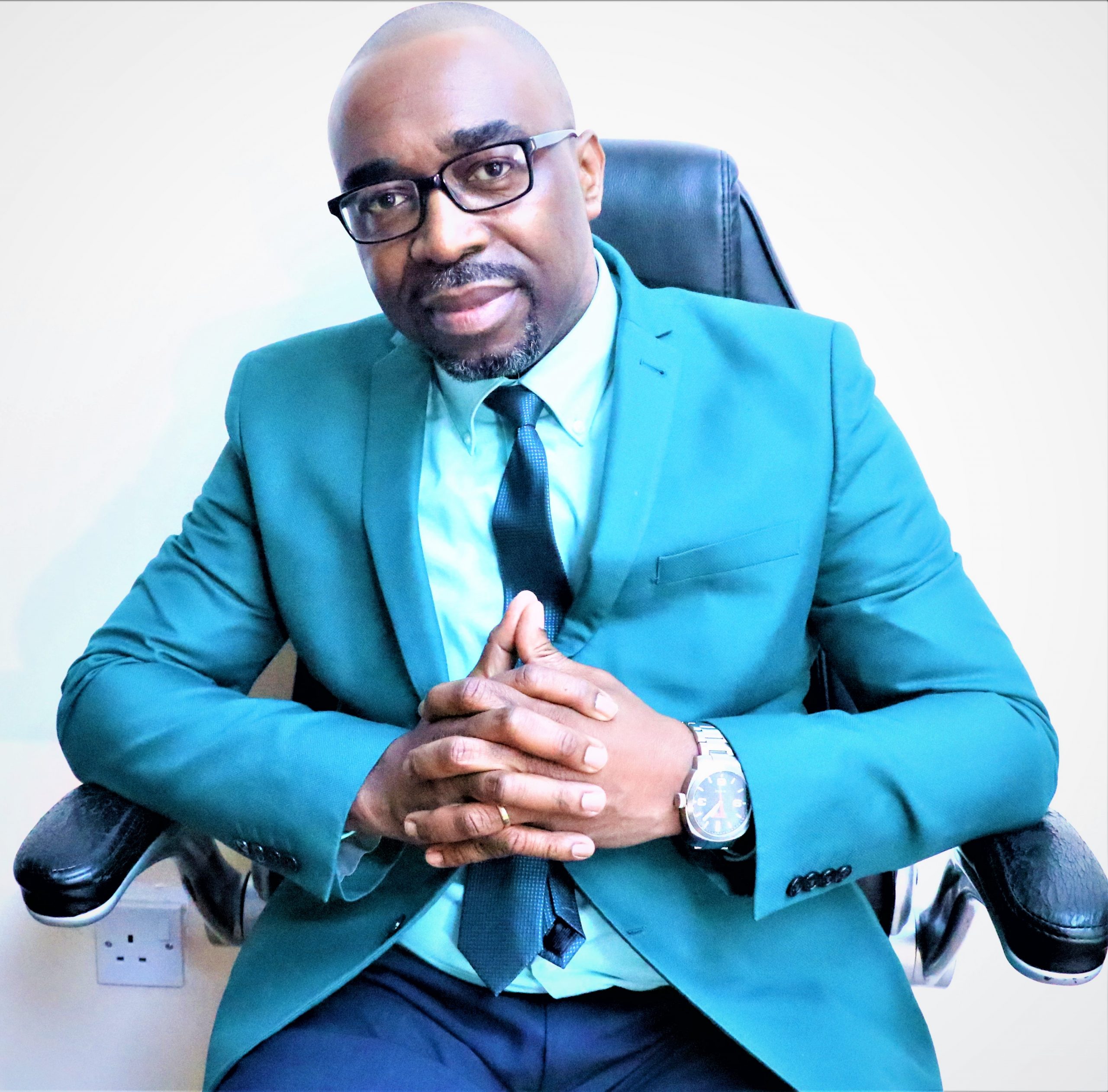
Jean-Claude is an ESRC funded PhD student at the University of Sheffeild. His thesis examines the use of radio in post-conflict situations and peacebuilding initiatives. He specifically focuses on Radio Okapi in the Democratic Republic of Congo.
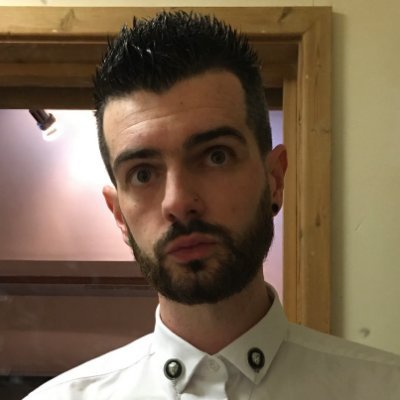
Struan Kennedy
Struan is a History PhD student at Northumbria University in Newcastle. My thesis firstly investigates how loyalist masculinities are expressed throughout the symbolic landscape of Northern Ireland. I am focusing on the impact of militarised displays, the public glorification of violence and the continued presence of intimidating imagery. Secondly the project seeks to understand ways of undoing this regressive practice which elevates a selective voice while silencing other narratives. This project is situated at the busy intersection between my three primary interests: culture, gender and conflict. This is derived from my background in History of Art at Glasgow University and Masters in Creative Practices of Research from Glasgow School of Art.
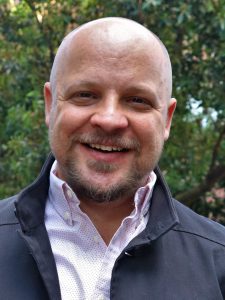
Rousbeh Legatis
Rousbeh is a peace and conflict researcher, former UN correspondent, and international consultant on the role of journalists as actors in conflict transformation processes. In his practice-oriented work, building on insights derived from critical peace research, he supports processes of peacebuilding, transitional justice and dealing with the past (DwP), and memory work in contexts of political transition. Rousbeh works with civil society organisations, as well as international and academic organisations, as a consultant, project developer and evaluator, to strengthen these organisations in their conflict transformation endeavours in peace processes, up until now predominantly in Latin America. In addition to capacity-building in institutions of transitional justice, this involves the creation of spaces for intercultural exchange between academics and practitioners, together with media assistance initiatives, strategic communication projects and the establishment of local media networks. He also teaches in public and private universities on concepts of peace, Communication for Peace (C4P), functions of the media in conflict transformation, the interdependence of peacebuilding and DwP, and memory work as an instrument of peace.
Rousbeh studied social sciences at the Leibnitz University Hannover and political science at the Freie Universität Berlin before working for the news agency Inter Press Service (IPS) for several years, reporting out of New York on international relations. In the context of research for a PhD in the Department of Politics and International Studies at the School of Oriental and African Studies (SOAS) in the University of London, Rousbeh is investigating the role of media and journalists as memory agents in processes of dealing with the past, working comparatively and drawing on instruments of Participatory Action Research (PAR).
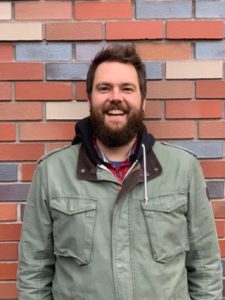
Eric is a peace scholar whose current research explores spaces of contact and the construction of community that includes the ‘other’ in conflict-affected societies. He is particularly interested in the counter-cultural, resistant, and unexpected spaces where peace is being enacted and imagined against a backdrop of division. Eric is currently employed as a Visiting Assistant Professor in Peace and Conflict Studies at Conrad Grebel University College, University of Waterloo (Canada).
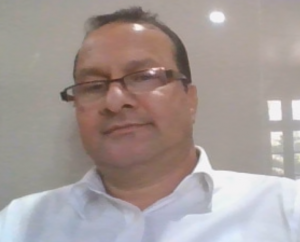
Dr. Mohd Ashaq Malik
Ashaq, pen name Dr. M. Ashaq Raza, is formally a Botanist, Ph.D in Plant Virology from Aligarh Muslim University and holds honorary Doctorate in Gandhian Philosophy and D.Litt. besides an MA in Journalism and Mass Communication and a PG in Human Rights. From 2000 to 2008, he served under UNDP funded project in the Ministry of Education, State of Eritrea finally as Director of Research (2006-2008) at Eritrean Institute of Technology, Asmara, Eritrea. Back home to India in 2008, he joined, as Assistant Prof. of Botany, Higher Education Department, J&K Government in 2009. He initially served at GDC Akhnoor, then in GCW Gandhi Nagar and now posted in Govt PG College Rajouri for past three years. In GCW Gandhi Nagar he served as NSS Programme officer between 2012 -2016, and now serving as Convenor of NSS Advisory Committee and secretary of Science Club in PG College Rajouri.
Ashaq has been engaged in peace and development works for past 20 years. Between 2003 to 2008, he served for about 30 development organizations including a dozen UN offices/organizations including UNDP Syria, UNV Vietnam, UNHCR Egypt, UNV Angola, UNDP Georgia, UNDP Burkina Faso, UNDP West Indies, UNDP Laos PDR, UNV Germany, UNV Afghanistan, UN Mission in Ethiopia and Eritrea(UNMEE) – as an online volunteer and was recipient of online volunteer of year award from United Nations Volunteers (Germany) in 2005. In 2010, he established voluntary NGO Attitude Change International and engaged, both formally and informally, in promotion and introduction of Peace education in curricula of Jammu and Kashmir. He is life member of/ associated with various scientific and development organizations/societies, including Red Cross, Gandhi Peace Foundation, Nepal, Amnesty International, Rotary International etc. Ashaq has won several awards for his peacebuilding activities.

Jesse is a songwriter, poet, visual artist, and peace scholar. His music has been described as having “more feeling than a bag full of feelings made out from feelings-cloth bought from the shop of feelings on feelings-street in feelings-town.” He has released four albums and toured the world as a front man in the Crooked Brothers. His poems have been published internationally. Through the University of Winnipeg and the University of Waterloo he has developed parallel practices in International Development and Peace and Conflict Studies. His current research focuses on peacebuilding and conflict transformation through the arts, specifically regarding poetry and folk music. He is originally from Treaty 1 Territory (Winnipeg) and currently lives in an apartment with his partner and two lively children on the Haldimand Tract (Waterloo) in the country they call Canada.

Jaremey is a Senior Lecturer in the School of International Relations at the University of St Andrews. He received his DPhil in International Relations from the University of Oxford. His main research interests are: ex-combatant reintegration, veterans’ politics, and youth as peacebuilding agents. He has published research on ex-combatant reintegration in International Peacekeeping, Review of International Studies, and Third World Quarterly. His 2013 monograph, Ex-combatants and the Post-conflict State: Challenges of Reintegration, was published by Palgrave Macmillan’s Rethinking Political Violence series.
Liberia: Legacies of Peace documentary short film series
Motorcycling as Peacebuilding research project
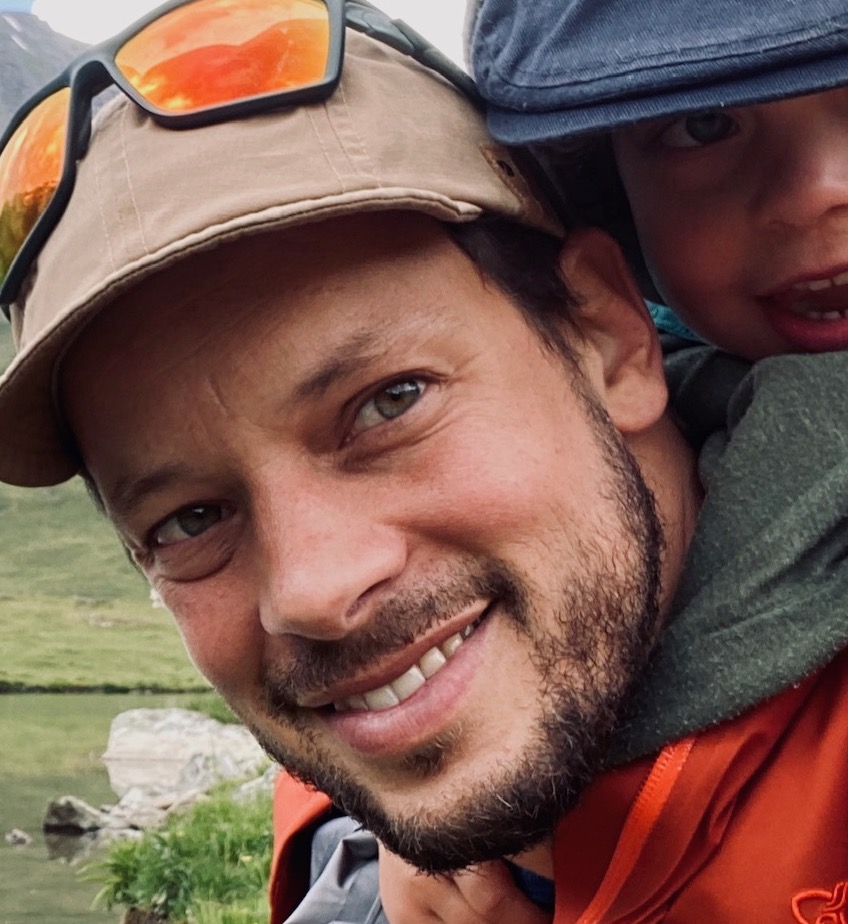
Sacha is Legal Advisor and Head of Policy and Research at Fondation Hirondelle. Sacha works on the design and implementation of media impact assessment studies with regular field missions, including in DRC, Mali, Burkina Faso and Niger. Sacha Meuter provides media development policy advices to Fondation Hirondelle’s partners, such as the Swiss Development and Cooperation (SDC). He has been working on the issue of the media of UN peace operations for more than 16 years. He notably initiated and coordinated a process of gathering lessons learned and best practices on this topic in close consultation with the UN Department for Peace Operations and the Department for Public Information. This process culminated in the first multistakeholders meeting on the transition of UN peace operations’ media in Geneva in 2018. Sacha is also Secretary on the boards of The New Humanitarian and Trial International.
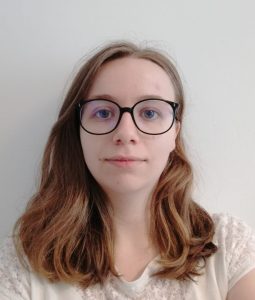
Marie Migeon
Marie is developing her PhD project at the University of Basel and is researching how visual and discursive representations of women in armed conflict shape their role in peace processes and after peace settlements. She will explore representations of women in Northern Ireland and Colombia as well as their political participation and inclusion. Her project looks into contexts where women were actively involved in conflict as well as in peace negotiations to understand links between political representation and discursive/visual representation. She is especially fascinated by the way murals have been used by conflict and peace actors. She is on Twitter: @marie_migeon
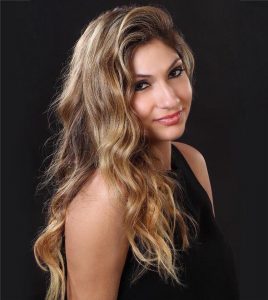
Eugenie Mikail
Eugenie is a Multimedia Creative Director and a Lebanese Anti-Corruption & Peace building activist who created a peace communicative project called “The People’s Parliament Show” which focuses on peace building solutions to conflicts through the use of television broadcast communication. Additionally, her recent work was reflected on the Red Carpet in Dubai, that held the title ‘Letter of Peace’ which paid tribute to the front liners who gave back to the community during the COVID19 pandemic. Understanding the importance of image promotion and branding in gaining public trust and credibility, her work is also reflected in NGO projects in the Middle East that work to solve societal problems that emerge from conflicts.
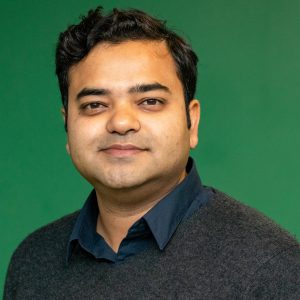
Saumava is Assistant Professor at the School of Communications of Dublin City University. His research focuses on identifying the gendered and geopolitical inequities inherent in photographs of – and acts surrounding photographing – violent and social conflicts. He is interested in both the questions of how these inequities are inscribed into the photographic images of conflicts as well as the effects of these inequities on the lives and livelihoods of those who produce these images. Prior to joining DCU, Mitra worked in journalism, communications and in academia in South Asia, East Africa, North and Central America and Western Europe.

Frank is a KONE Foundation Grantee (2020-2022; project leader Peace Videography) and Docent in Peace and Conflict Research at Tampere University, Finland. An expert in visual peace research, Frank explores the role and function of visual images in conflict resolution, peacebuilding and mediation. His most recent book on the visual representation of peace is Peace Photography (Palgrave Macmillan 2019).
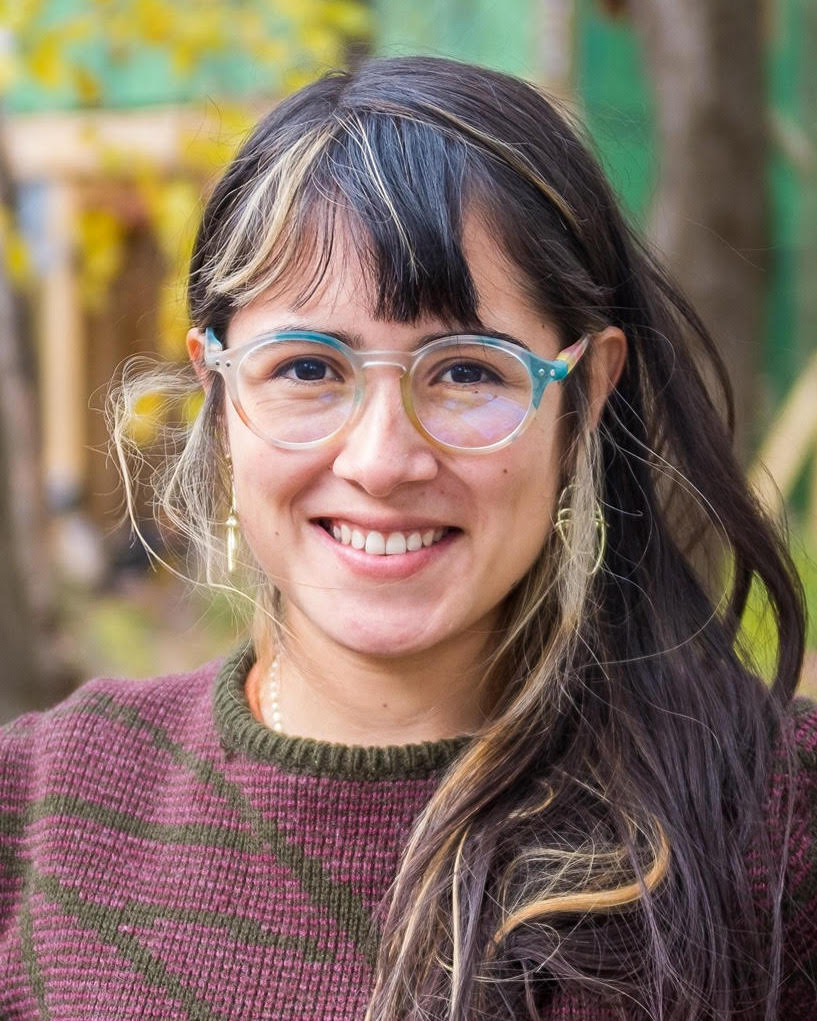
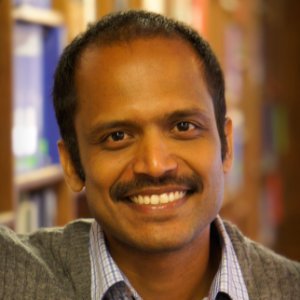
Sreedhar Nemmani
Sreedhar is a PhD student at the Klein College of Media and Communication, Temple University. His research interests are in the intersections of media, communities, and technology, and engages with non-western epistemologies. His current research explores the role digital technologies play in the communities that are situated in geographical, social, and economic margins. A former journalist, Sreedhar completed his master’s degree at The Fletcher School of Law and Diplomacy with a focus on International Security, Conflict Resolution, and International Communication. During his master’s coursework he conducted ethnographic fieldwork in India and Greece. He also holds a PG Diploma in Journalism.
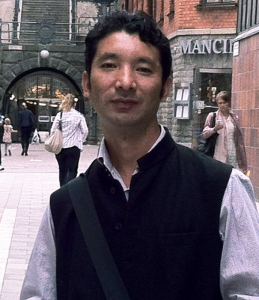
Javel is currently working as Senior Assistant Professor and Convener Internal Quality Assurance Committee at Government Degree College Kargil University of Ladakh in Kargil, India. Javed has a multidisciplinary background with Bachelor/Master degrees in life science from University of Kashmir India and MPhil/PhD degrees on infectious diseases and global health governance from Jawaharlal Nehru University, New Delhi India. His areas of interests are peace education, non-violent communication, peace parks, inter relationship between biodiversity conservation and peacebuilding. Javed is board member of Biodiversity Council and State Wildlife board, Union Territory of Ladakh Government of India.
He is also Advisor/Honorary Chief Coordinator of the Peace Gong, a global children newspaper to encourage role of children in peace building through media literacy. His role as the Coordinator for United Nations My World Campaign has resulted in United Nations Award for Volunteerism for Peace Gong. He is also the former co-facilitator and founding member of the Asia Pacific Youth Network, formed by young people and rights organizations from 20 countries in the Asia Pacific region. Javed has considerable experience of working with youths and people movements. He has worked, in the past, with SAKSHAM The Global Fund to fight for AIDS TB & Malaria, Salaam Balak Trust and India Social Forum. In 2014, Javed was selected for Swedish Institute’s Young Connectors of the Future Fellowship by Swedish Govt., an intercultural leadership programme that aims to lay a foundation for dialogue and knowledge sharing among young leaders from South Asia.
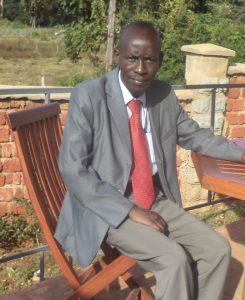
Wyclife is a lecturer in the School of Security, Diplomacy and Peace Studies at Kenyatta University and the executive director at Oasis Peace Web Organization in Kenya. He has over seven years experience in teaching, research and cross-border peacebuilding in Kenya, Uganda, and South Sudan in Africa. Some of his recent chapter contributions include a book on Theorizing Somali Society: Hope Transformation and Development. His chapter focused on a Theoretical Perspective of Religious Sect as the Root of Violent Extremism in Somalia, Aalborg University Press. Another chapter focuses on Resources, Climate Change and Implications to Positive Peace among the Pastoral Communities in Kenya, in the Palgrave Handbook of Positive Peace, Springer Publications. His research interests include peacebuilding, security and development. Wyclife holds a PhD from the United Nations-mandated University for Peace (UPEACE), Costa Rica. His personal philosophy: to touch more lives.
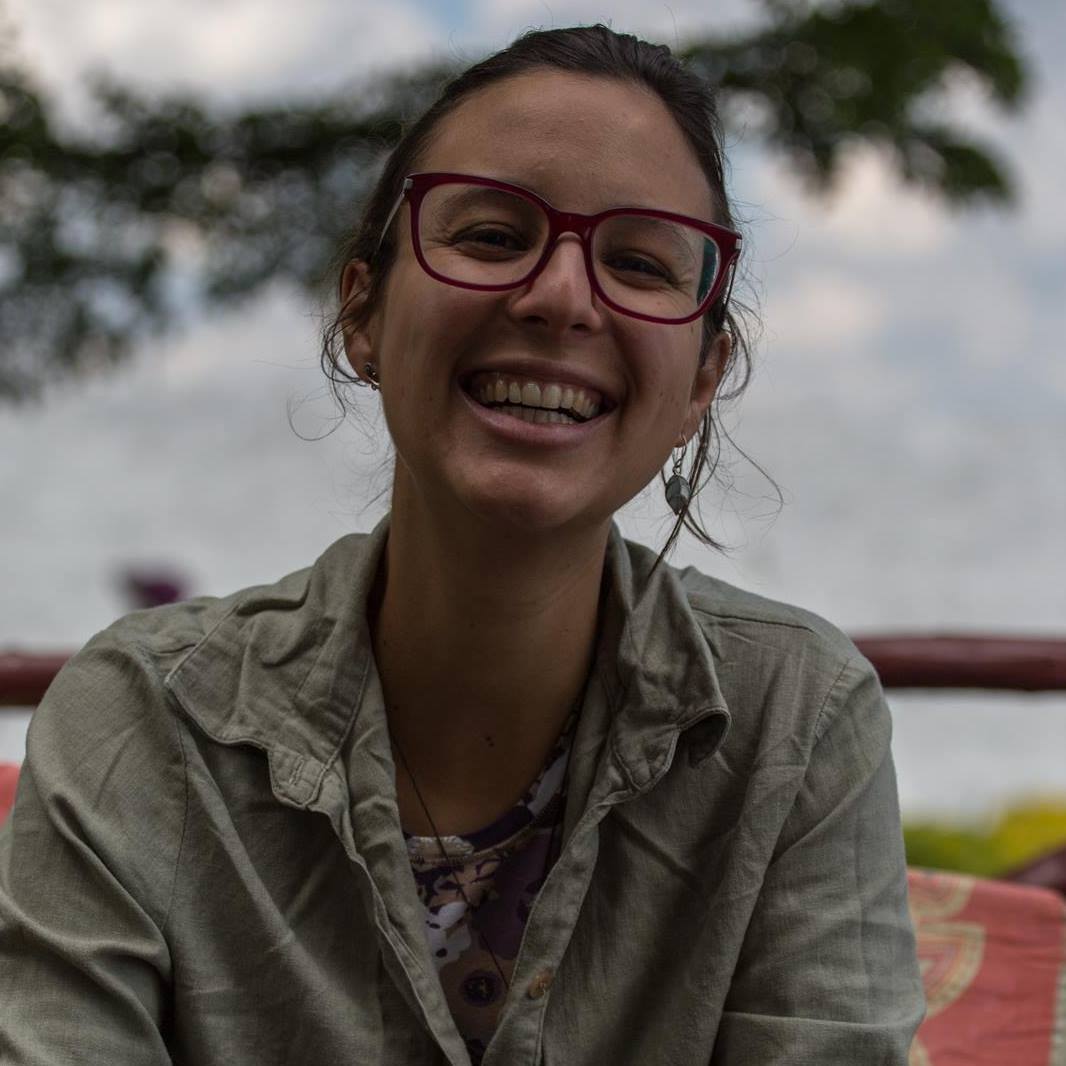
Fabiola is a Luso-Brazilian journalist and historian. She is currently a PhD fellow at the Program MEDAS 21 – ‘Global Media Assistance: Applied Research, Improved Practice in the 21 Century’ (Erich Brost Institute for International Journalism, Dortmund) and research associate at the Institute of Communication Science in Duisburg-Essen University, Germany. Her research interests are media development/assistance in (post)conflict societies; media and peace; media in conflicts; journalism culture; peacebuilding; communication and social change.
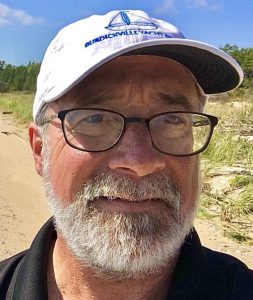
Michael is a Professor in the College of the Arts and Media at Central Michigan University, and the Founding Director of the Social Media Research and Analytics Lab (SMRAL) at the same institution. He also serves as a consultant to the Conflict Resolution Program of The Carter Center. His published work has focused on organizing for social change and development, peace negotiations, and peacebuilding by NGOs. Among his projects have been studies of the micro-loan programs of the Grameen Bank in Bangladesh, women’s empowerment through participation in dairy cooperatives in India, promoting community harmony through entertainment-education in India, HIV/AIDS prevention programs in Thailand, and the peace negotiation and peace building activities of the Carter Center in Sudan and Uganda. Dr. Papa has also examined the conflict in Darfur since 2003 by taking a social constructionist perspective highlighting the roles of climate change, race, and gender in the perpetuation of violence. His current projects include studies of the Women’s Alliance for Peace in Darfur, and Syrian and Afghani asylum seekers in Sweden.
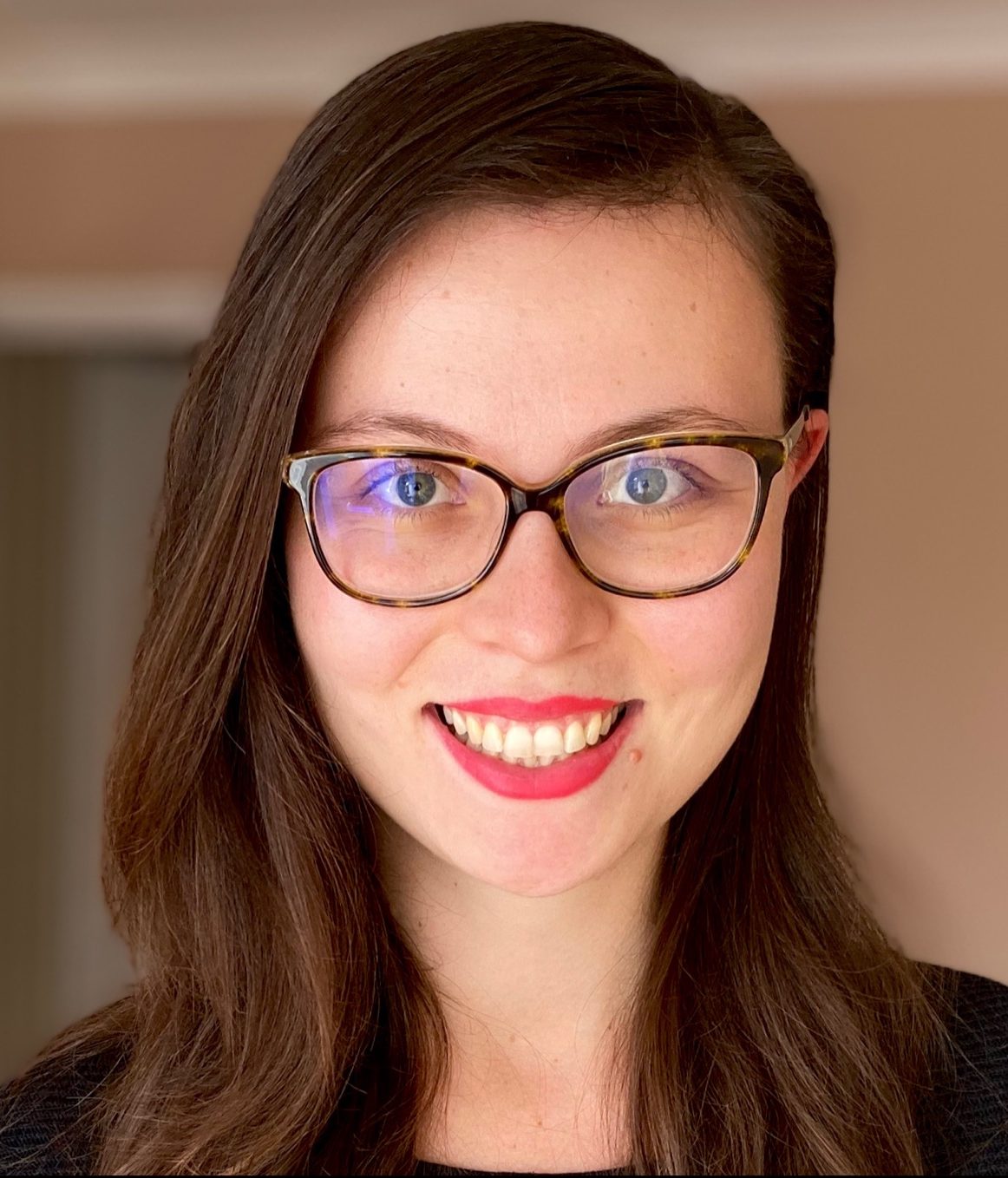
Dr Evelyn Pauls
Evelyn is the Impact Manager of the UKRI GCRF Gender, Justice and Security Hub. She recently led a participatory action research project on the long-term reintegration of female ex-combatants using documentary filmmaking in Burundi, Indonesia, Nepal and the Philippines. Evelyn completed her PhD at the LSE, focusing on international advocacy on child soldiers in Sierra Leone and Myanmar, especially the role of International Organisations and NGOs in effecting sustainable change in policy and practice. She was also the editor of Millennium: Journal of International Studies vol.45, and a visiting researcher at the National University of Singapore.
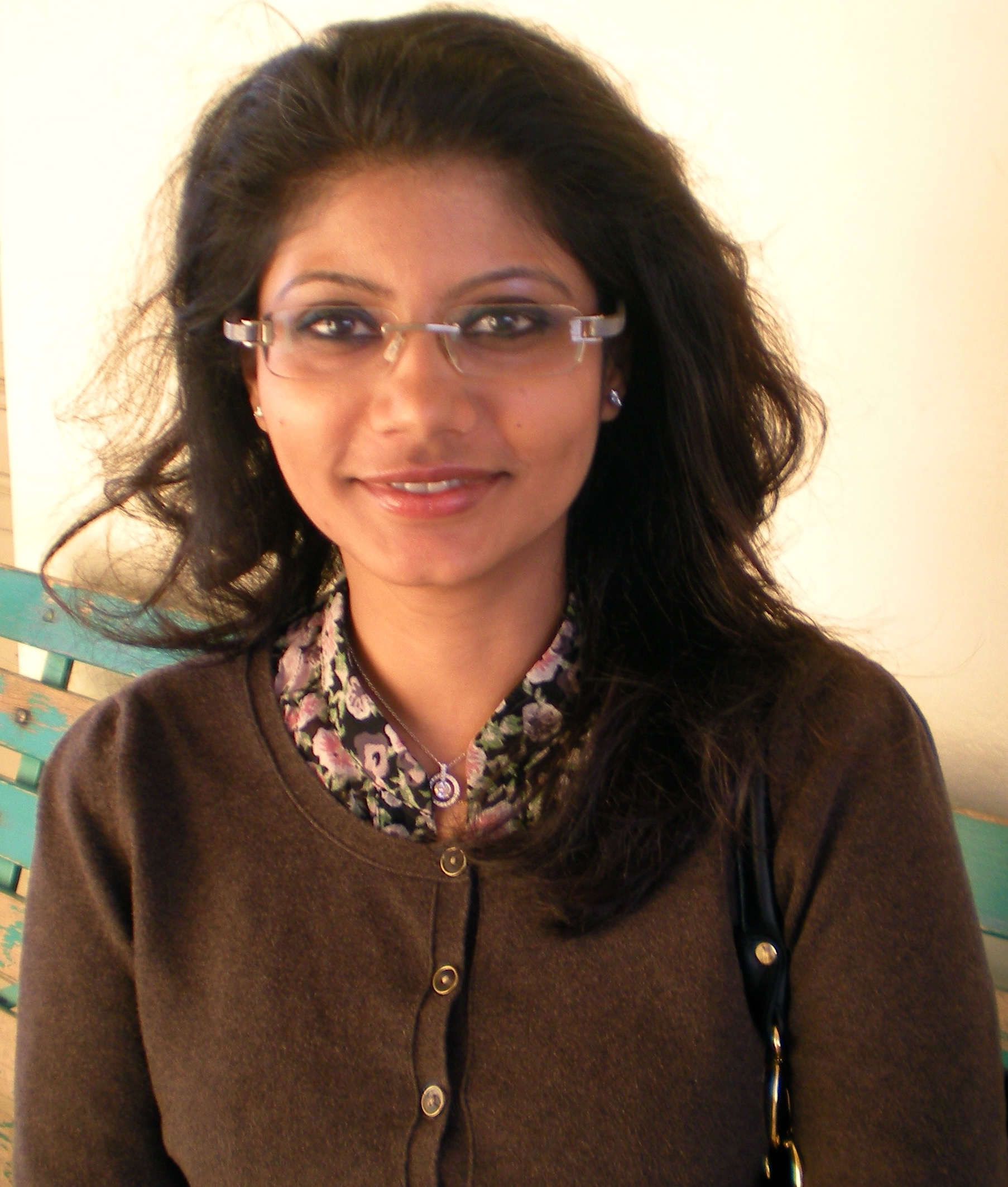
A principal research project now is on conceptualising peacebuilding legacies. I use data from children and youth programmes run by a leading international peacebuilding organisation for 15+ years in Sierra Leone and Macedonia. The conceptual part of the project takes cues from an analytical framework using norm resonance and retention, formal institutionalization of peace projects, and organisational learning and reflection. It adopts a meta-ethnographic methodology using longitudinal evaluative data. This project makes the first attempt for conceptualising how long-term effects of peacebuilding projects using media and peace education can be studied.
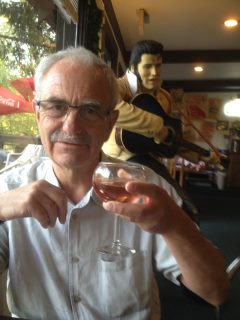
Tim is a director of the Community Interest Company Indra which is a network organisation that connects groups of young people who use the arts in conflict transformation in hubs in different countries: Brazil; Greece; Palestine; South Africa; U.K., among others. His current academic research focuses on empathy; specifically the implications of recent discoveries in neuroscience for how humans learn and the curriculum changes that need to follow from these.
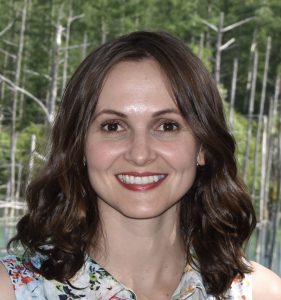
Lesley is Senior Lecturer in the School of Social and Political Sciences at the University of Melbourne. Lesley researches how arts-based activities like music, dance, theatre, creative writing, and filmmaking can bring people together for social change, with a particular interest in the ways young people participate in politics and peacebuilding through such creative means. Some of her writing on these topics include the books Youth Peacebuilding: Music, Gender & Change (State University of New York Press, 2013) and Dancing through the Dissonance: Creative Movement & Peacebuilding (Manchester University Press, 2020 with Erica Rose Jeffrey).
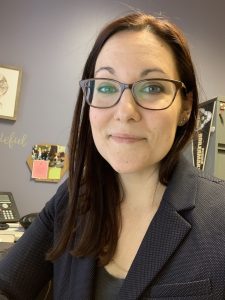
Jen is an Assistant Professor in the Department of Communication at the University of Dayton. Her research examines intersections of health and organizational communication, including in peacebuilding contexts. As a former Research Assistant for the Purdue Peace Project, she has collaborated with citizens in Liberia, West Africa on locally led peacebuilding initiatives, in which she conducted participatory monitoring and evaluation on projects focused on violence prevention between police officers and motorcycle taxi drivers, during the Ebola outbreak, and during presidential elections. Through this work she has contributed to academic journal articles, edited book chapters, blog posts, and white papers on peacebuilding. Dr. Ptacek’s recent published work has appeared in academic journals including International Journal of Business Communication and Journal of Applied Communication Research and an edited book titled Transforming Conflict and Building Peace: Community Engagement Strategies for Communication Scholarship and Practice (Peter Lang Publishing). Her recent co-authored book is titled Leader-Member Exchange and Organizational Communication: Facilitating a Healthy Work Environment (Palgrave Macmillan, 2021).
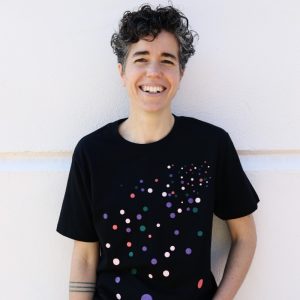
Helena works at Build Up, a non-profit that works to identify and apply innovative practices to prevent conflict and tackle polarization, which she co-founded in 2014. She is a peacebuilding professional with over a decade of experience advising and supporting UN agencies, multi-lateral organisations and NGOs working in conflict contexts and polarized environments. She specializes in the integration of digital technology and innovation processes to peace processes, and has written extensively on this subject matter. She is also an Ashoka Fellow.
Helena has been invited to speak about civic technology and innovation in venues including SXSW Interactive, Geneva Peace Talks, Geneva Peace Platform, The Hague Institute of Global Justice, IPI Vienna Seminar, MIT’s Centre for Civic Media and more. She previously served on the Boards of Elva Community Engagement, International Alert, ImpactHub Barcelona and the Stand-by Task Force, and currently serves on the Boards of Public Sentiment and Digital Peace Now. She holds a BA in Politics, Philosophy and Economics from Oxford University and a Masters in Public Policy (Economics) from Princeton University.
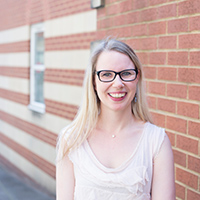
Stef is a Senior Lecturer in Public Communication and Civil Development. Her research interest and expertise focus on the role that public communication can play in the building, developing and diminishing of civil society. She has examined how European citizenship was publicly communicated to European citizens from 1951 onwards and she has looked at how the EU has tried to stimulate what she calls a Civil Europe from the 1950s onwards through the use of culture, the mass media and education. She has acted as an official historian for the European Commission and its policies on public opinion and citizenship. She is currently working on her third monograph where she looks at how self-sustainable peace can be built in post-civil war settings through the use of communication which for her includes the fictional and factual media as well as the performative and visual arts. Stef also currently acts as a consultant for the UN DDR programme and the revision of its public information module. Her first two books Representations of European citizenship since 1951 and The building of Civil Europe 1951-1972 were both published with Palgrave Macmillan.
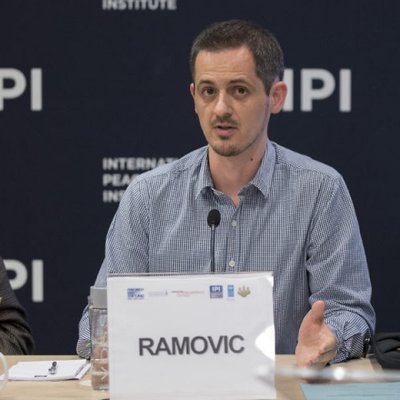
Jasmin is a Lecturer in Peace and Conflict Studies in Politics Department at the University of Manchester. He is interested in interdisciplinary approaches to studying international relations, particularly the intersection of anthropology, international political economy and peace and conflict studies. His research focuses on local actors in conflict-affected settings, with a specific focus on the economic dimension of their everyday. This has led his recent research projects to concentrate on examining the potential of the workplace for peacebuilding. He is also interested in analysing the state of social contracts in societies divided by ethnic conflict. His research has been published in international journals and he has recently co-edited The Palgrave Handbook of Disciplinary and Regional Approaches to Peace (2016).
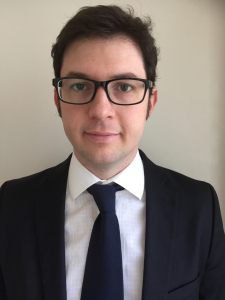
Paul is Senior Lecturer in Social Media & Digital Society at the University of Sheffield. He specialises in the study of digital activism, with a focus on three key areas: (1) the use of social media by citizens to create and share acts of sousveillance (inverse surveillance); (2) the ways in which digital media can be used to crowdsource crisis information; and (3) the use of new media to reduce sectarian tensions and promote better community relations in divided societies such as Northern Ireland. His work has been published in a number of journals including First Monday, Information, Communication & Society, Journalism, and New Media & Society. Recently completed research projects include a British Academy funded study of YouTube footage of the union flag protests in Northern Ireland, and a Horizon 2020 funded study of how social media can be used to build community resilience against disasters.
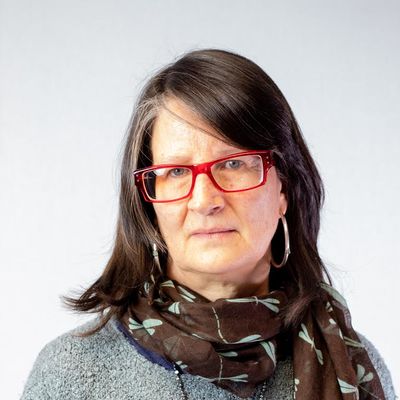
Clemencia is a Professor in the Department of Media Studies and Production at Temple University. Her research explores the complex roles of media in contexts of war, mostly in Colombia. Based on fieldwork in regions of Colombia where leftist guerillas, right-wing paramilitary groups, the army, and drug traffickers make their presence felt in the lives of unarmed civilians she wrote Citizens’ Media Against Armed Conflict: Disrupting Violence in Colombia (University of Minnesota Press, 2011). In this book she explored how people living in the shadow of armed groups use media to shield their communities from the negative impacts of war. Rodríguez has also researched how Twitter was used to further polarization in Colombia during the peace process in 2019. Her latest project explores how television narratives such as La Niña represent Colombia’s conflict.

Holly joined the School of Politics and International Relations in September 2018. Her research sits at the intersections of visual and international politics. It has a particular emphasis on the relationship between art, power and resistance in Latin America and beyond. Dr Ryan’s recently published book ‘Political Street Art: Communication, Culture and Resistance in Latin America’, examines the relationship between street art forms and politics in Bolivia, Brazil and Argentina. She is currently working on an ESRC New Investigator funded project exploring international friendship, solidarity and twinning practice.
Dr Ryan is an Associate Fellow of the Higher Education Academy. She has eight years of teaching experience in UK Higher Education, having previously taught and lectured at Kings College London, Aston University, Manchester Metropolitan University and City University of London, where she completed her PhD in 2013.
Twitter: @HollyERyan
Website: www.friendship-project.international
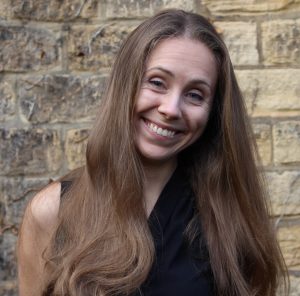
Anastasia is Lecturer in Politics and International Politics, Director of the Centre for the Comparative Study of Civil War and UK Research and Innovation Future Leaders Fellow leading the Civil War Paths project at the University of Sheffield. Her fieldwork-intensive research examines the internal dynamics of and international intervention in civil war, with a focus on violent mobilization, ex-combatant reintegration, and civilian protection in armed conflict. Her book Mobilizing in Uncertainty: Collective Identities and War in Abkhazia was published with Cornell University Press in 2021 and her work has appeared in American Political Science Review, Journal of Peace Research, Cambridge Review of International Affairs, and International Peacekeeping.
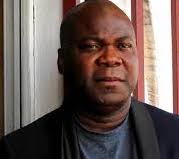
Journalist and author, Rodney D. Sieh, is the editor and publisher of Liberia’s largest independent print and online daily, where groundbreaking reporting has brought down senior government figures and exposed corruption at all levels.
Rodney was a 2016-2017 Gordon N. Fisher / JHR Fellow at Massey College, Toronto, Canada, part of the William Southam Journalism Fellowship. A graduate in media studies from Hunter College in New York City, Rodney has won a number of awards including Journalist of the Year and Media House of the Year in Liberia. In 2014, he was named by Reporters Without Borders as one of its 100 “Information Heroes”, and FrontPageAfrica received the TV5Monde Prize for Press Freedom. In 2019, he received the X-International Press Freedom Prize, presented in Malaga, Spain. Rodney is co-founder of New Narratives, the non-profit that supports investigative journalism at leading independent newsrooms in West Africa. New Narratives has been a key partner with FrontPage Africa in many of the media outlet’s biggest stories. One New Narratives/FrontPage Africa collaboration made reporter Mae Azango into an internationally renowned journalist. Her reporting on female genital mutilation brought global attention to the cruel ritual, eventually forcing the government to act.
The newspaper has been successful in reporting stories about justice, striking mineral workers, poverty, and prostitution – stories that had never been covered by other Liberian publications, whose staff regularly accepted bribes from politicians. FrontPage Africa did such an effective job of exposing human rights violations and corruption that Rodney was sent to prison. In August 2013, he was sentenced to 5,000 years in jail, and FrontPageAfrica was shut down due to his failure to pay a libel award of $1.5million, won by a former government minister who sued him and his paper after the publication of a government audit.
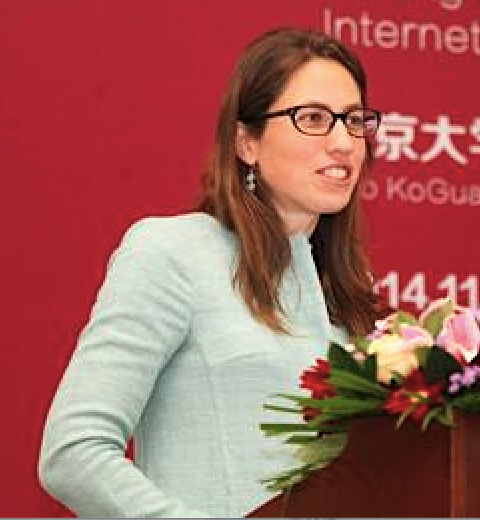
Nicole is Head of the Programme in Comparative Media Law and Policy at the University of Oxford and Research Professor in the Humanities at the University of Johannesburg. She currently leads a European Research Council project on Social Media and Conflict with a focus on the Horn of Africa. Recent books include: Media, Conflict and the State in Africa (Cambridge University Press 2018); Speech and Society in Turbulent Times (ed with Monroe Price) (Cambridge University Press 2018); and UNESCO’s World Trends in Freedom of Expression and Media Development, with Iginio Gagliardone and Monroe Price (UNESCO 2018).
Website: http://pcmlp.socleg.ox.ac.uk
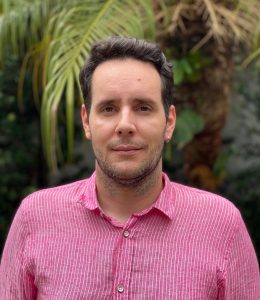
Aureo is Associate Professor of International Relations at the Federal University of Uberlândia, Brazil. He holds a Ph.D. in Political Science from the University of São Paulo, Brazil. From 2014-2015 he was a Visiting Scholar at the Humanitarian and Conflict Response Institute, University of Manchester, UK. In 2019 he was a Fulbright Visiting Scholar at the Jimmy and Rosalynn Carter School for Peace and Conflict Resolution, George Mason University. US. His main areas of research are local approaches to peacebuilding, and post-structuralist and postcolonial perspectives in International Relations.
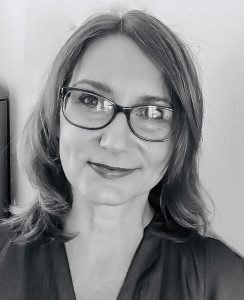
Kerstin is an Assistant Professor at the American University of Kurdistan’s Center for Peace and Human Security in the Kurdish autonomous region of Iraq. Her research interests include media development and media as a foreign policy and peacebuilding tool as well as group processes in post/conflict settings and questions of perceptions of ’the local’ and ’the international’. Kerstin holds a PhD degree from Cardiff University and has worked as a media expert for NATO in Afghanistan and for some NGOs in South Sudan. She was a postdoctoral fellow at the Leonard Davis Institute for International Relations at the Hebrew University of Jerusalem. Kerstin is the author of Statebuilding Missions and Media Development: A Context-Sensitive Approach (in press, Routledge).
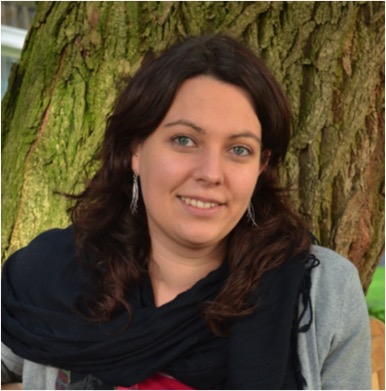
Birte is Lecturer in Peace and Conflict Studies at the University of Manchester. She is a founding member of the International Consortium for Conflict Graffiti (ICCG) and a Co-Investigator for the AHRC project The art of peace: Interrogating community devised arts-based peacebuilding. Birte is interested in how the arts connect to international and local peacebuilding attempts, and how the arts can be an alternative source of knowledge to better understand local conflict dynamics.
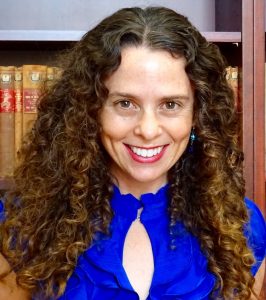
Yael (Ph.D., University of California at San Diego and MA, University of Pennsylvania) is Assistant Professor of Telecommunications and Media Industries and Founding Director of the Children, Media and Conflict Zones Lab at Pennsylvania State University. Specializing in the concept of “peace communication (PeaceComm)” she pioneered, she was recipient of three top dissertation awards, one in peace studies and two in global and international communication. She is fluent in and/or studied five languages and conducted fieldwork in the Middle East, North and Sub-Saharan Africa, the Balkans, and Latin America. Author of Experiencing the Israeli Palestinian Conflict: Children, Peace Communication and Socialization (Cambridge University Press), the book critically determines the efficacy of peace communication interventions in managing political conflicts. Her current field-based projects explore human and communication rights of stateless and forcibly-migrated and – sedentarized conflict zone populations through her interpretations of North West African youth’s global uses of media. She previously worked with the Center for International Development and Conflict Management, the Truman Institute for the Advancement of Peace, the Center for Research on Peace Education, and UNESCO.
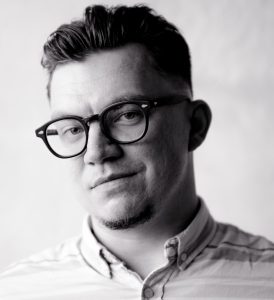
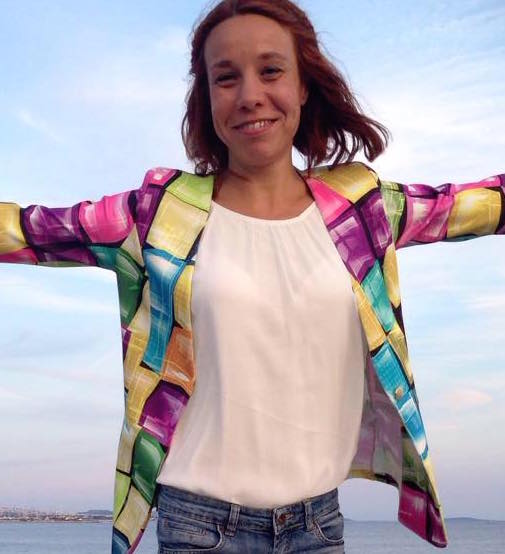
Derya is a researcher at the Communication Studies Department of Vrije Universiteit Brussel (VUB), and a lecturer at the Journalism Department of Near East University (NEU) in Cyprus. She completed her master’s degree in Political Science at the University of Trieste in Italy, and her PhD in Media and Communication Studies at the VUB. Since 2008, Derya has been involved as a manager and consultant in various international cooperation projects across the Euro-Mediterranean, in the field of arts, education, and media, with the partnership of cultural institutions, research centers and universities. For around a decade, her work has centered on media, peacebuilding, and citizen participation, carrying out projects and academic research bridging these fields. In continuation of this focus, her PhD thesis titled “Community Media as a Participatory Contact Zone for Youth in the Divided Cyprus” examined the contributions of participatory media practices to conflict transformation in the ethno-politically divided island of Cyprus, by organizing and analyzing a project that brought together Greek Cypriot and Turkish Cypriot youth for participatory media productions.
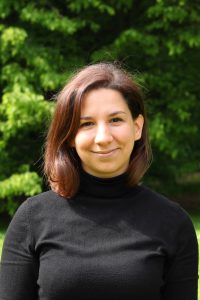
Roja is a PhD fellow at the graduate school MEDAS 21 – Media Development in the 21st Century at the Erich Brost Institute for International Journalism, Dortmund, and a research associate at the Institute for Media Studies at the Ruhr University Bochum (Germany). Her PhD research project is on UN radios in peace operations with a special focus on Côte d’Ivoire, Liberia and Sierra Leone. Her research interests include: media development, United Nations, human rights and humanitarian law, peace and conflict studies, epistemology, political theory and legal philosophy. You can connect with her on LinkedIn.
